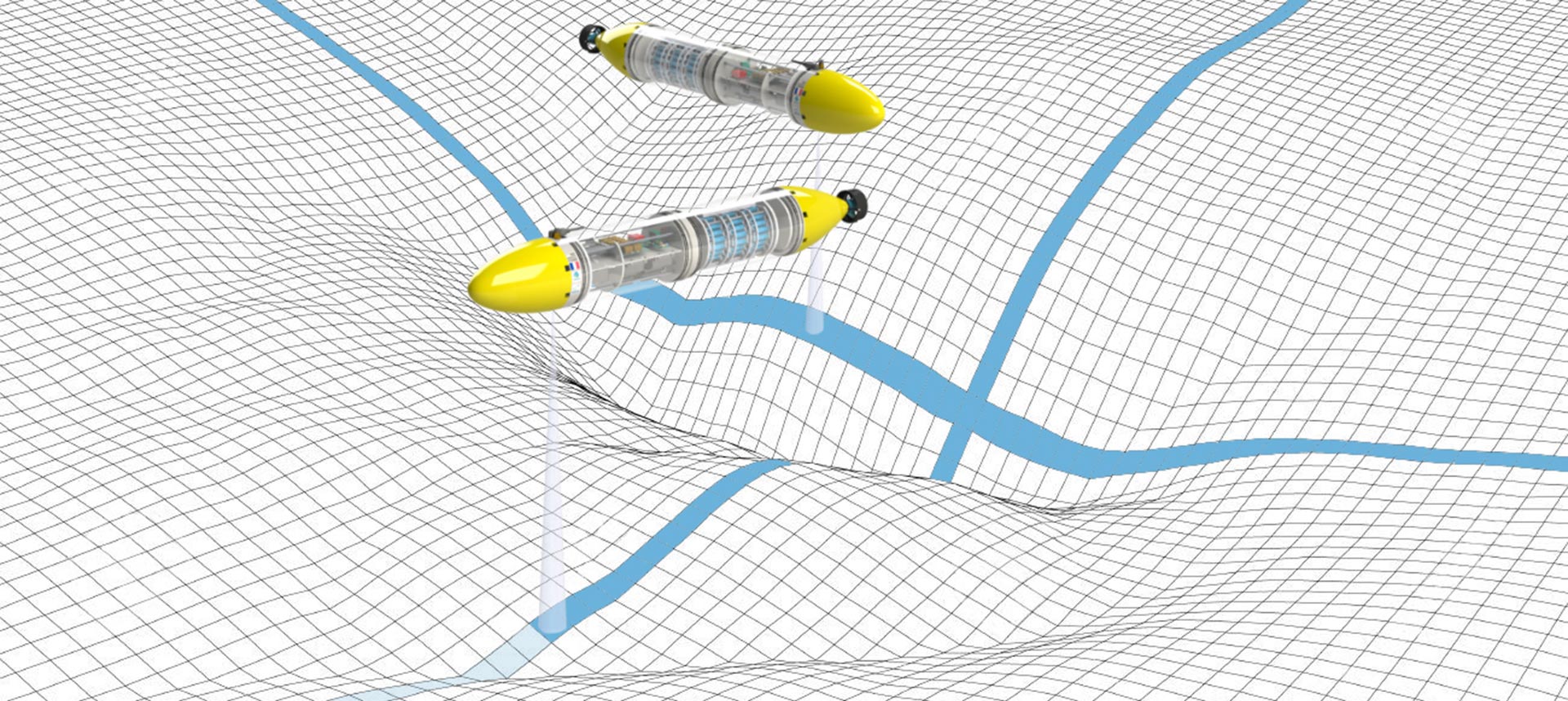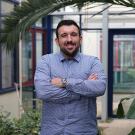

What are the scientific challenges in Marine Robotics?
The acronym MOQESM means « MOnitoring Quantitatif de l’Environnement Sous-Marin » or Quantitative Monitoring of the Underwater Environment ». This is exploring the underwater world using robots : mapping the floors, underwater imaging of the floors and the water column, carrying out different monitoring (salinity, temperature and so on) with the help of autonomous robots, capable of collecting a lot of data during long missions (several months) and geolocating, without resurfacing or using a GPS.
These robots must be able to cover vast expanses at sea, at all depths. Yet, there is one remaining difficulty: to succeed in designing robots capable of geolocating as GPS signals cannot penetrate water. We have to come up with other methods and technologies. Several research laboratories are working on this around the globe. On a national scale, ENSTA Bretagne and the Lab-STICC laboratory have played a key role in this field for almost 20 years.
One of the methods explored is based on the analysis of acquired data to deduce the location and handle the piloting and mission of the robot. Simultaneous localization and mapping, conducted in a repetitive manner, enable the precise and accurate localization of an underwater robot, and long and ultra-long missions. Several theses have been led on this theme at ENSTA Bretagne (the Lab-STICC laboratory), with underwater technology companies and the DGA (French Procurement and Technology Agency), especially that written by Simon Rohou, winner of the CNRS robotics thesis award in 2017, and that of Jérémy Nicolas, also defended in 2017.
MOQESM’2020 is the 6th edition of this marine robotics conference, conducted in Brest under the auspices of ENSTA Bretagne, as part of SeaTech Week. It is one of the much awaited meetings of experts in the French Marine Robotics scientific community. Every two years, it brings together international specialists in the field for a comprehensive overview of the scientific progress and challenges in underwater robotics.
MOQESM’2020 : international researchers and the science committee present
For the 2020 edition, the science committee has selected about twenty presentations which are particularly representative of the theme and the challenges.
The MOQESM science committee is composed of 4 French researchers, including two from Brest.
- Prof. Simon ROHOU, Autonomous Robotics and Marine Robotics lecturer at ENSTA Bretagne, member of the Lab-STICC and head of the French CNRS Marine Robotics work group.
- Prof. Luc JAULIN, lecturer in Autonomous Robotics and Marine Robotics at ENSTA Bretagne for over fifteen years, member of the Lab-STICC laboratory. (for more info.)
- Prof. Vincent CREUZE, Robotics lecturer at the University of Montpellier.
- Prof. Frédéric PLUMET, Robotics lecturer at the ISIR (UPMC, Paris).
Among the researchers present, let us mention two of the scientists who will be attending, one Spanish, the other Australian.
- Prof. Raphaël GARCIA, researcher in Robotics and Underwater Vision, founder and director of the Underwater Vision Lab (UVL), a leading Marine Robotics Laboratory, part of the University of Gerona (Spain).
- Prof. Karl SAMMUT, specialist in Underwater Robot Trajectory Planning (Center for Maritime Engineering), Flinders University (Australia).
Presentation video of MOQESM’2020





















